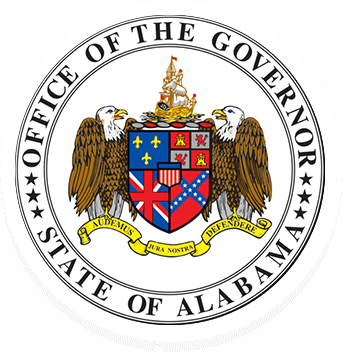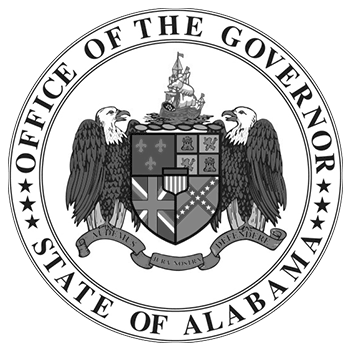Executive Orders
The authority for Governor Kay Ivey to issue executive orders is contained in Ala. Code § 36-13-9 (1975). Executive orders are not statutes like those passed by the Legislature; however, they may have the force and effect of law, depending on the nature and subject of the order. Legal proclamations are different from ceremonial proclamations issued by the Governor’s Office. Governor Ivey uses executive orders and legal proclamations for a variety of purposes, including: to declare and terminate states of emergency during natural disasters, energy crises, and other situations requiring immediate attention; to create advisory, coordinating, study, or investigative committees or commissions; to call a special session of the Legislature; and to address management and administrative issues, such as regulatory reform, environmental impact, and intergovernmental coordination.

Executive Order 583
Amendment 4: Allowing for Consideration of a Certificate of Need Application for a Veterans' Home in Enterprise, Alabama

Executive Order 723
Establishing the Governor's Alabama National Guard Joint Enlistment Enhancement Program





EXECUTIVE ORDER NO. 718
Establishing the Governor's Study Group on Criminal Justice Policy


EXECUTIVE ORDER NO. 716
Imposing a Temporary Moratorium on Early Parole Hearings and Requiring the Submission and Implementation of a Corrective Action Plan for the Board of Pardons and Paroles


